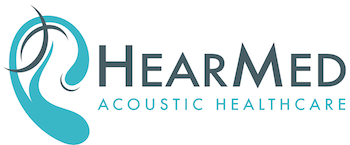Battery Hearing Aids vs. Rechargeable Hearing Aids
When it comes to choosing a hearing aid, one important consideration is the choice of power source. Traditional battery powered hearing aids have long been the standard. In more recent years, rechargeable hearing aids have started to gain in popularity. Battery and rechargeable hearing aids both come with their own set of unique pros and cons. Let’s take a look at some of these pros and cons.
Battery Hearing Aids
Pros:
- Widely Available: Battery hearing aids use standard disposable batteries, such as zinc-air batteries, that are widely available.
- Longer Battery Life: Battery hearing aids typically have a longer battery life compared to rechargeable hearing aids. The lifespan of a battery can vary depending on factors such as the size of the hearing aid and the user’s daily usage, but it can range from several days to a couple of weeks.
- Easy Replacement: Changing the battery in a hearing aid is a fairly simple process. Many hearing aids have a battery compartment that are easily accessible, allowing users to replace the battery themselves without the need for professional help.
Possible Cons:
- Battery Replacement Cost: Regular battery replacement can become costly over time. Users need to keep a supply of batteries to hand and remember to replace them when they run out. This ongoing expense can add up, especially for individuals with severe hearing loss who require more frequent battery changes.
- Environmental Impact: Disposable batteries contribute to environmental waste if they are disposed of improperly. The zinc and other materials in these batteries can have harmful effects on the environment if not recycled or disposed of in the correct manner.
- Possibly Inconvenient: For individuals with limited dexterity or visual impairments, handling and inserting small batteries into the hearing aids can be challenging and inconvenient. Of course, in most cases, this can be easily overcome with the help of a family member or friend.
Rechargeable Hearing Aids
Pros:
- Convenience and Simplicity: Rechargeable hearing aids offer convenience and simplicity. Instead of constantly replacing batteries, users can simply place their hearing aids in a charging station or dock overnight, ensuring they are ready to use the next day.
- Cost Savings: Over time, rechargeable hearing aids can be more cost-effective than battery-powered ones. Users do not need to purchase disposable batteries regularly, reducing ongoing expenses associated with battery replacement.
- Environmentally Friendliness: Rechargeable hearing aids are more friendly to the environment than traditional disposable batteries. They produce less waste, reducing the number of batteries that end up in landfills.
Possible Cons:
- Limited Battery Life: Rechargeable hearing aids have a limited battery life, typically lasting between 24 hours to a few days on a single charge. This means users need to remember to charge their hearing aids regularly to ensure uninterrupted use.
- Power Source: Users of rechargeable hearing aids need easy access to a reliable power source for charging their hearing aids. When travelling or during a power outage, it can be a bit more challenging to charge the hearing aids.
- Battery Degradation over Time: Rechargeable batteries can experience reduced capacity and shorter battery life over time. After a number of years, the battery’s performance can become reduced, needing replacement or professional servicing.
The choice between battery hearing aids and rechargeable hearing aids ultimately depends on your individual hearing aid preferences and requirements. At Hearmed Healthcare, our experienced audiologists are here to guide you through the entire selection process. We do this by factoring in your lifestyle, hearing needs and your personal preferences. We offer a wide range of the highest technologically advanced battery and rechargeable hearing aids available.
If you have any questions or wish to arrange an appointment, simply complete the contact form below. Alternatively call: Tullamore: 057 934 9388, Portlaoise: 057 86 38181 or Portumna 090 970 2984
